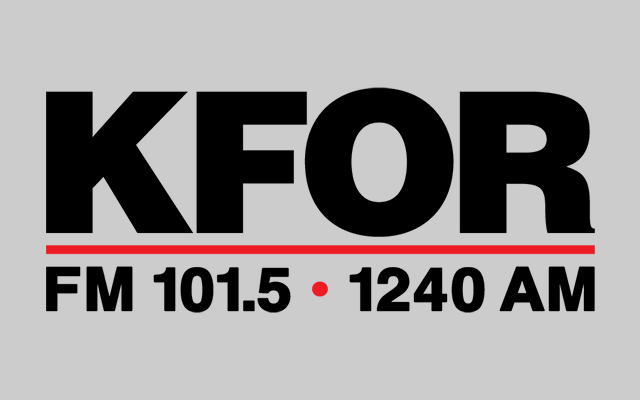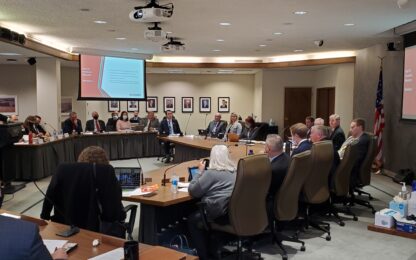Task Force Issues Recommendations To Help Local Economy Recover From COVID-19

LINCOLN–(News Release Sept. 9)–Mayor Leirion Gaylor Baird and members of the Economic Recovery Task Force today released a report with recommendations to support Lincoln’s economic recovery in the face of COVID-19. Mayor Gaylor Baird appointed the 18-member Task Force in May and charged it with developing strategies to support local businesses, workforce development, and sectors of the economy that have been strongly impacted by the pandemic, while fostering public health, inclusion, and resilience in Lincoln.
“In many ways, COVID-19 laid bare some of the deep economic challenges already facing Lincoln, from rising underemployment to declining economic mobility,” Mayor Gaylor Baird said. She acknowledged that the road to economic recovery and renewal would not be an easy one, but she noted that we all – residents, employers, and public and private leaders – have a stake in the process and a part to play.
The Task Force’s report is available at COVID19.lincoln.ne.gov on the “Business Resources” page. The website also includes summaries of the report in Spanish, Arabic and Vietnamese. The report and related appendix include the results of a Task Force survey that had more than 260 respondents. The survey results informed many of the Task Force’s recommendations. The Task force was co-chaired by Ava Thomas, President and Publisher of the Lincoln Journal Star, and Angie Muhleisen, President and CEO of Union Bank & Trust.
The Task Force issued recommendations in six main areas:
- Developing opportunities for business-to-business support. The Task Force recommends the organization of business-to-business town halls in which businesses directly share information, resources, and experience with one another on topics relevant and timely to the business community, including supporting mental health and social connectedness, accessing financial assistance, and creating a safe working environment.
- Investing in local, small, and diverse businesses, including women- and minority-owned businesses. The Task Force recommends, in the spirit of economic resilience and inclusion, that residents, employers, and public and private sector leaders target spending toward local businesses, small businesses (less than 50 employees), and diverse businesses, including women- and minority-owned businesses. It recommends that the City re-evaluate its procurement policies and practices to enhance access to City contracting opportunities, and it encourages employers in a position to do so to pledge to spend 1 percent more locally. The Task Force also encourages employers to continue to support employee childcare by providing flexible work arrangements and subsidizing childcare where possible, in the spirit of economic resilience and inclusion.
- Leveraging local workforce assets. The Task Force recommends the simplification and amplification of employer participation in local workforce programs and networks that are designed to connect jobseekers with employment opportunities, such as EmployLNK, the American Job Center, and NEworks. It encourages employers to eliminate potential barriers to employment by revising and simplifying job descriptions with the help of organizations like the Lincoln Human Resource Management Association and Society of Human Resource Management.
- Upskilling and reskilling Lincoln’s workforce. The Task Force recommends that the City of Lincoln create incentives for reskilling workers who have lost jobs as a result of COVID-19 and for upskilling low-wage workers, to allow them to advance into higher positions. The Task Force also recommends that workforce and education partners, in collaboration with employers, develop “ready to work” courses that prepare residents for new industries and lead to employment opportunities, like the Lincoln Manufacturing Council’s six-week manufacturing class that culminates in a manufacturing jobs fair.
- Promoting workplace safety and consumer confidence. The Task Force recommends the development of an awareness campaign to highlight local businesses that are advancing public health by employing common sense and innovative public health strategies. The Task Force also recommends that public and private sector leaders help businesses gain access to personal protective equipment.
- Providing financial assistance to impacted businesses and investing in new businesses. The Task Force recommends that the City establish a fund to provide grants to businesses that have been particularly impacted by COVID-19, and that the community continue to invest in new businesses and support a culture of entrepreneurship.
Task Force subcommittees were led by Jasmine Kingsley (Local Business Strategies), Cori Sampson Vokoun (Local Workforce Strategies), and Maribel Cruz, Ph.D. (Local Sector Strategies). Other task force members were Marco Barker, Ph.D., Matt Bavougian, Wendy Birdsall, Quentin Brown, William Cintani, John Croghan, Shannon Harner, José Lemus, Susan Martin, Dan Marvin, Kim Russel, Nader Sepahpur, and Bud Synhorst.






